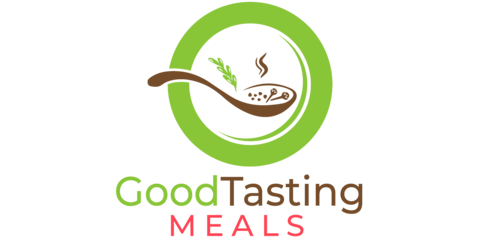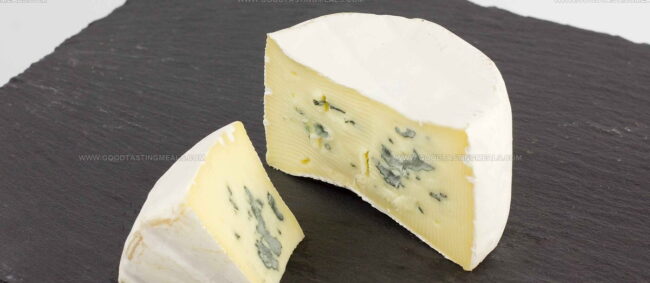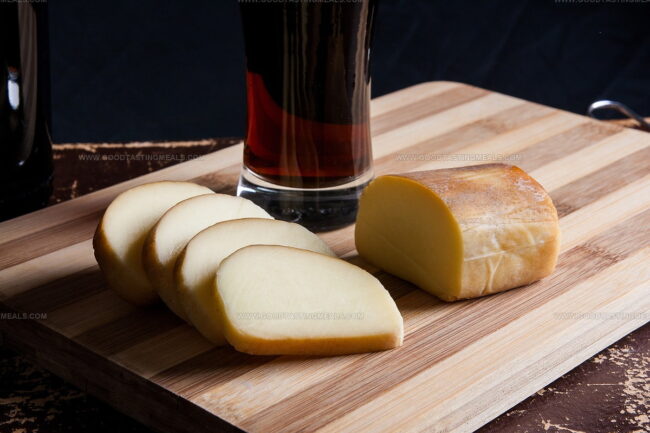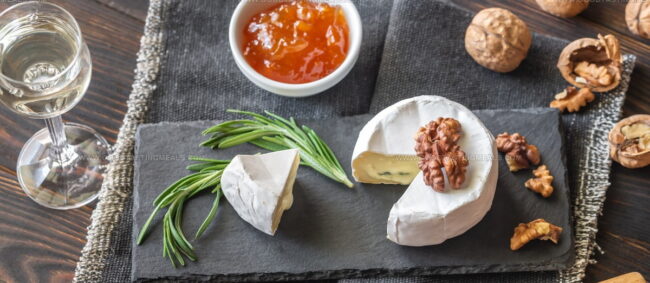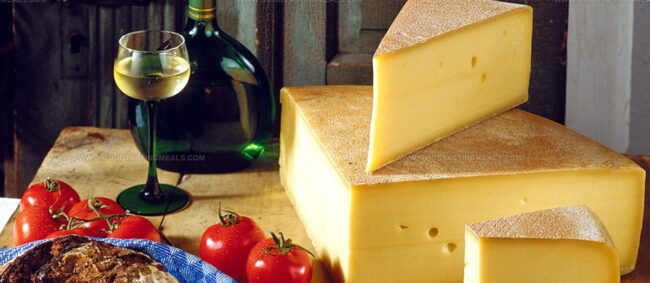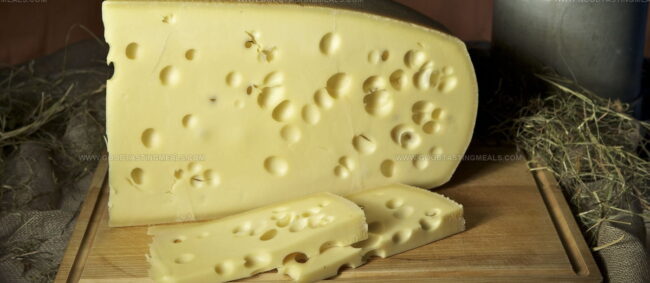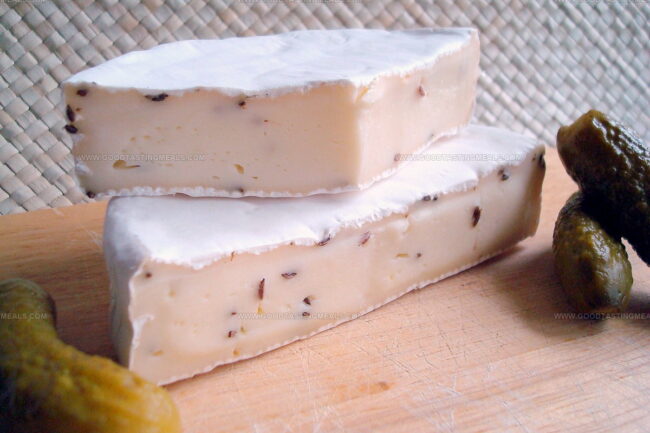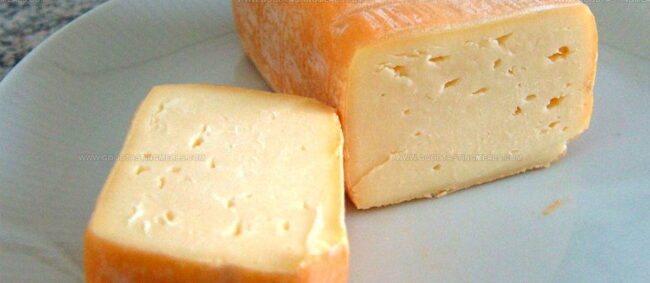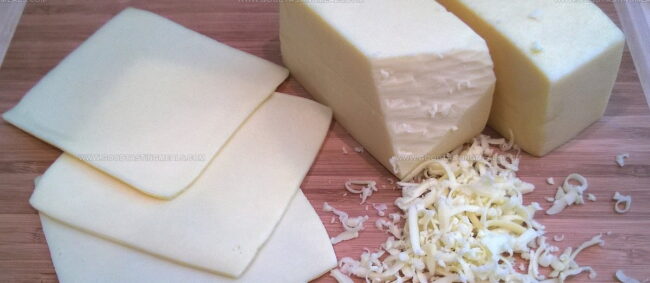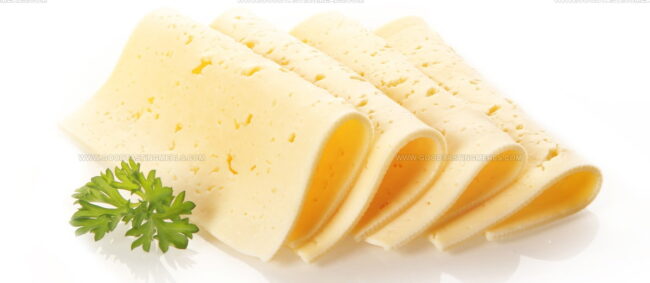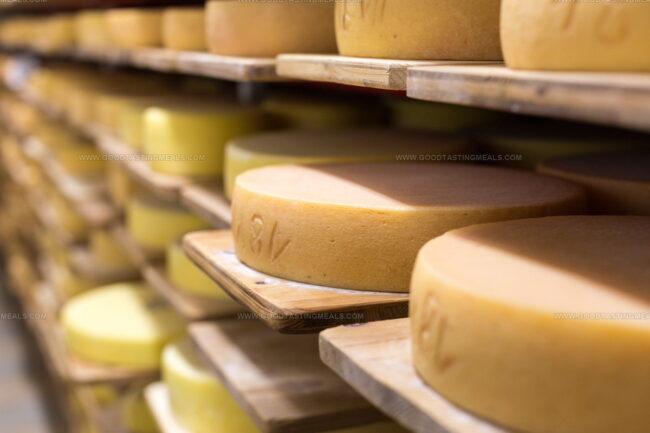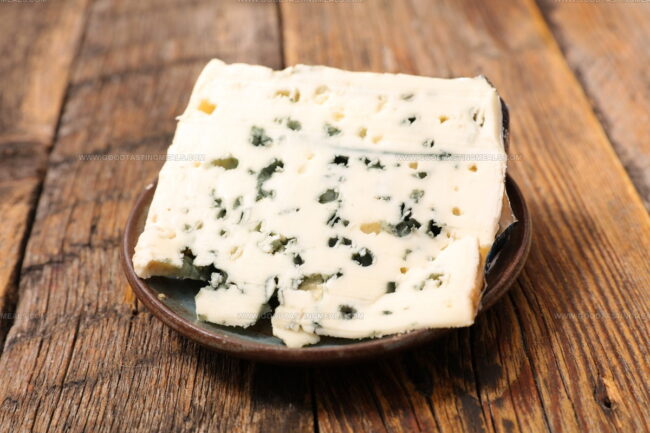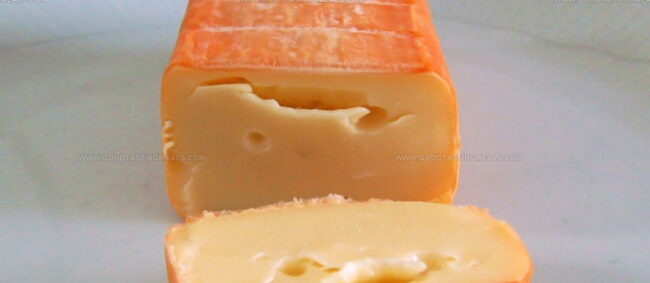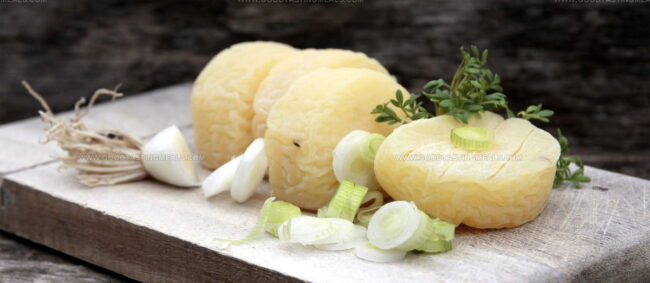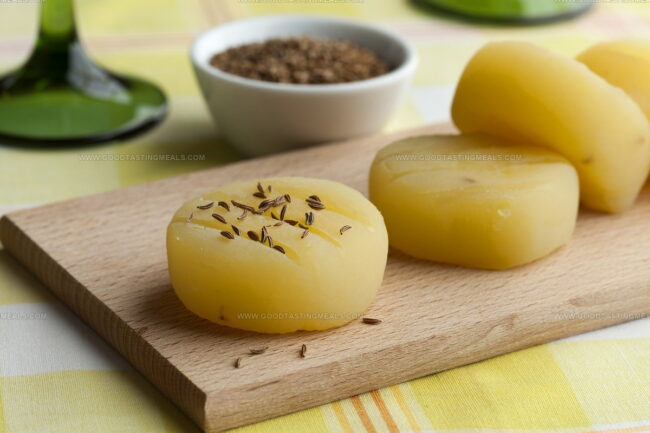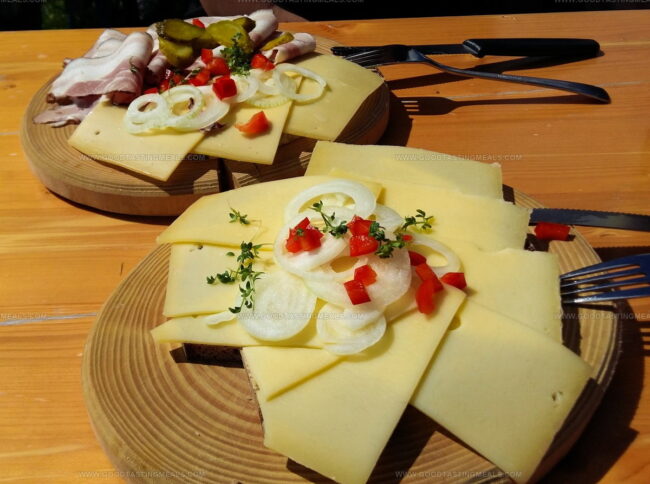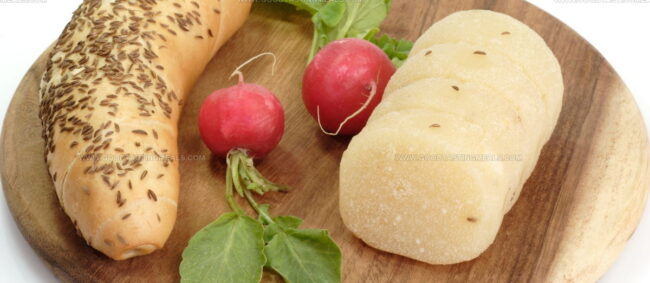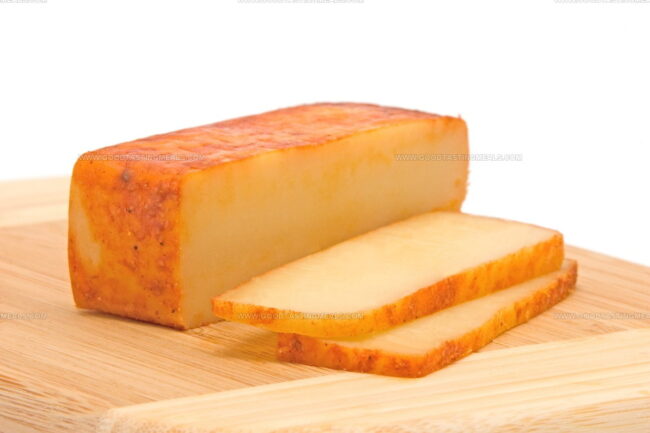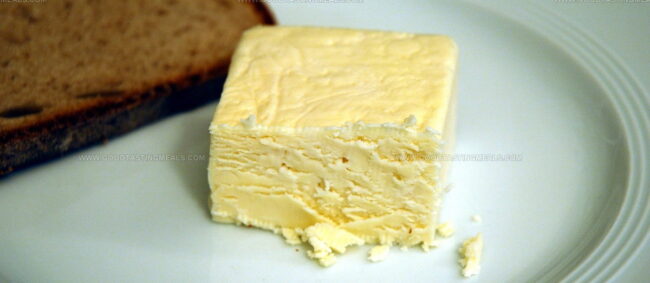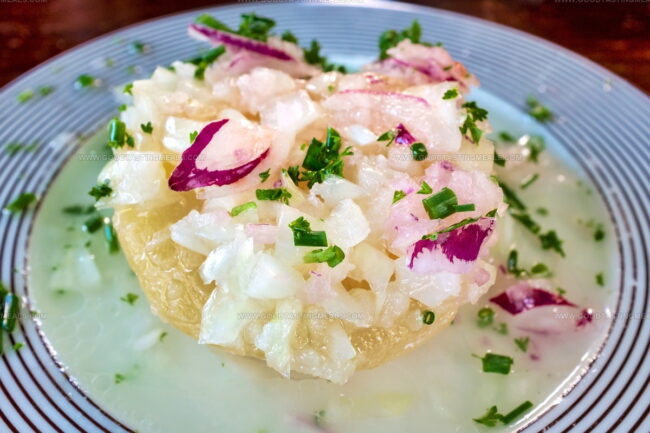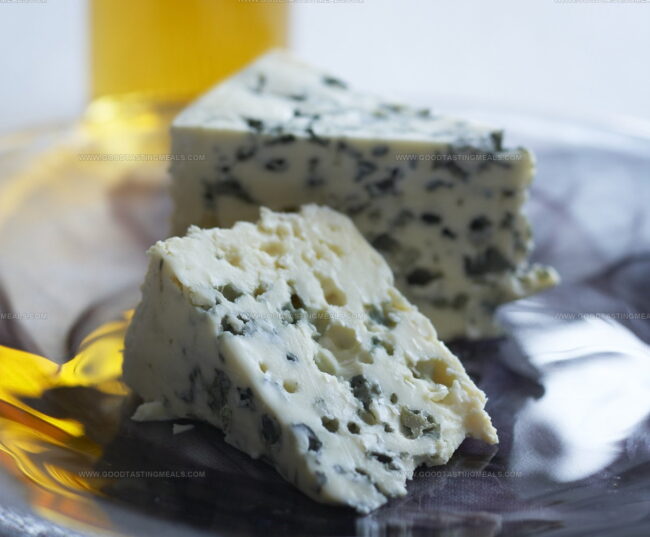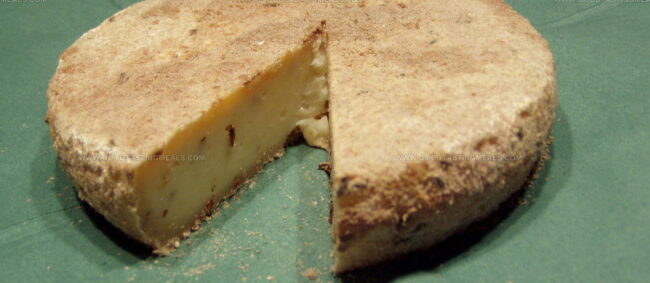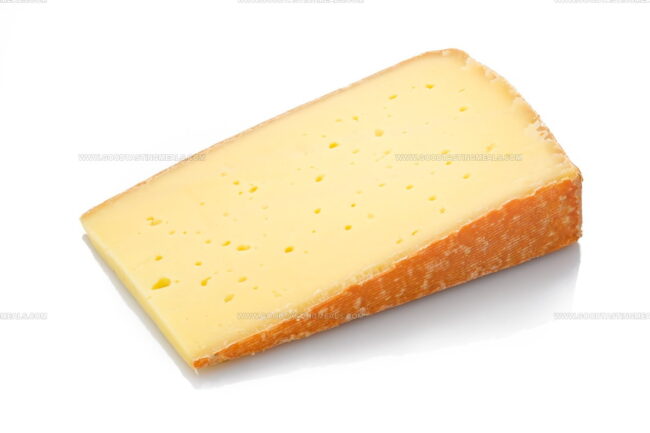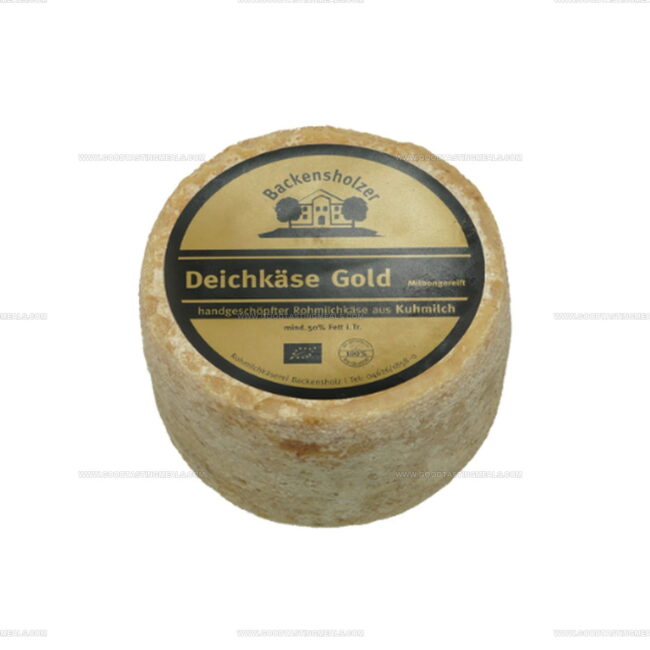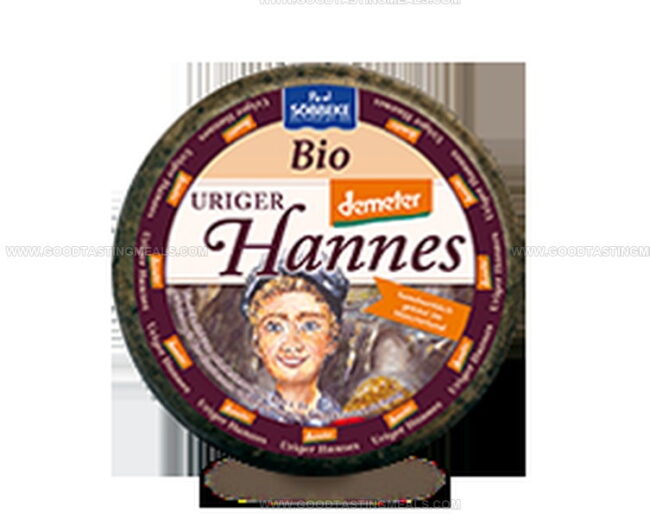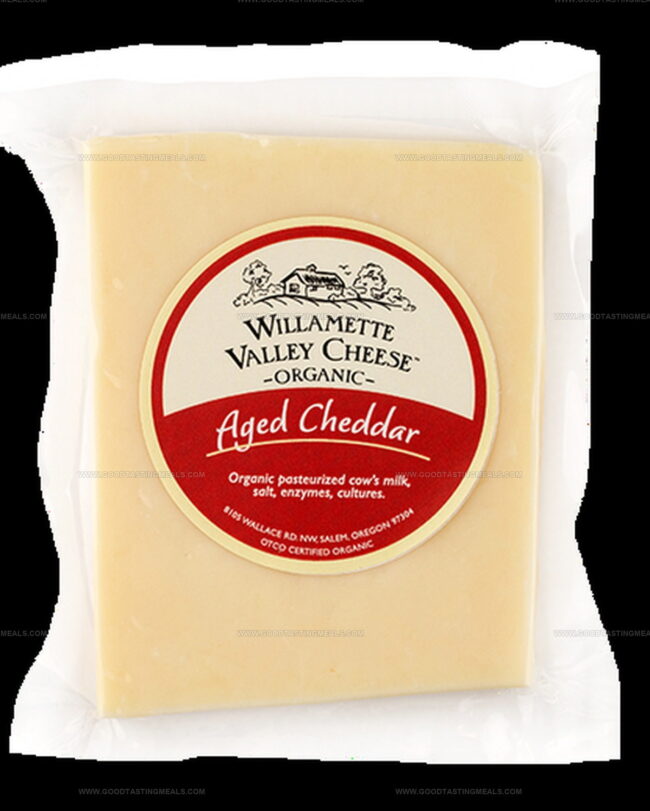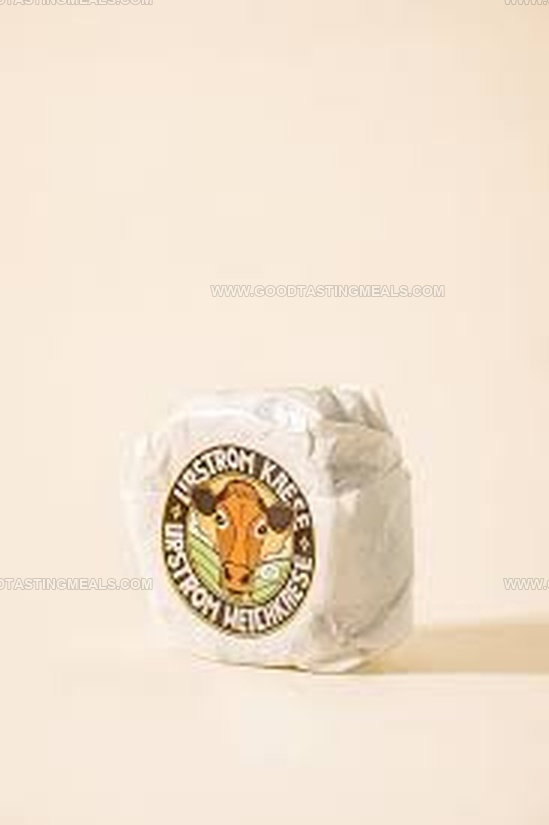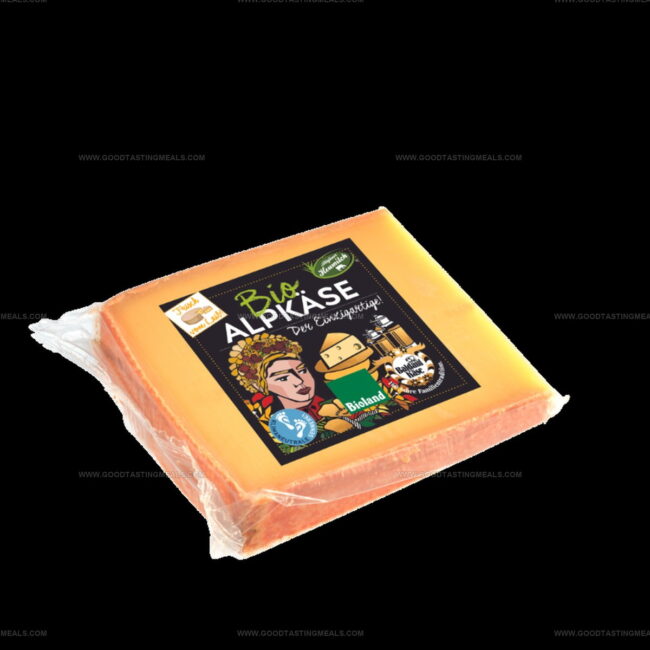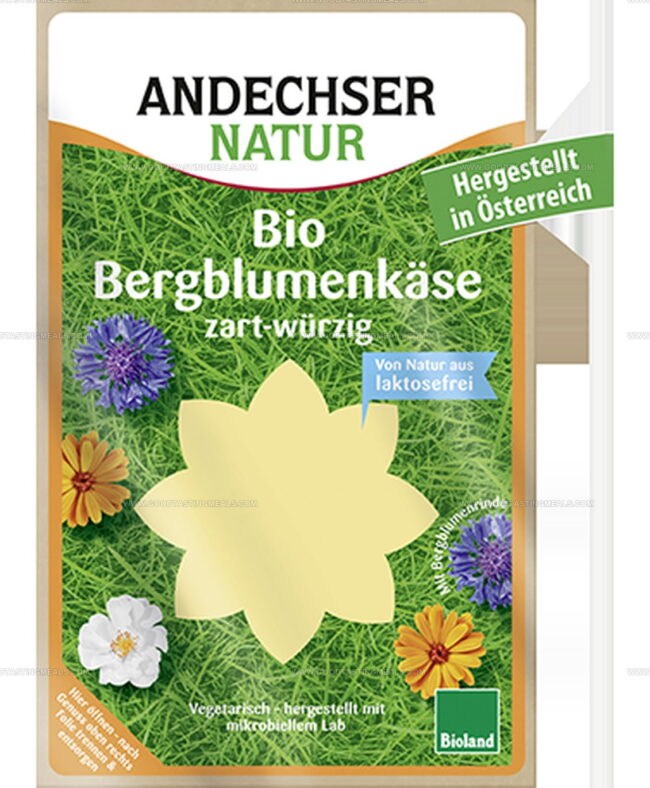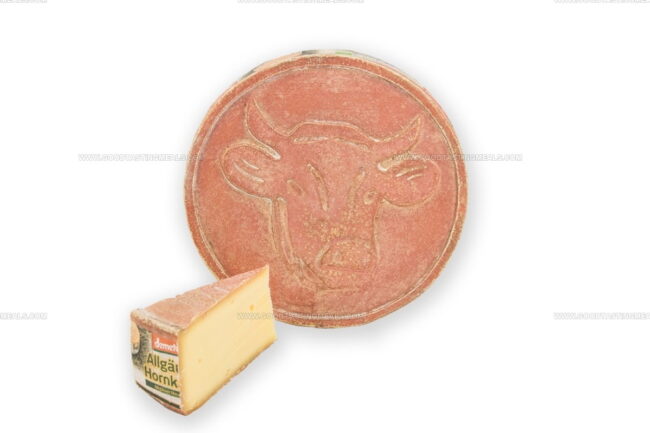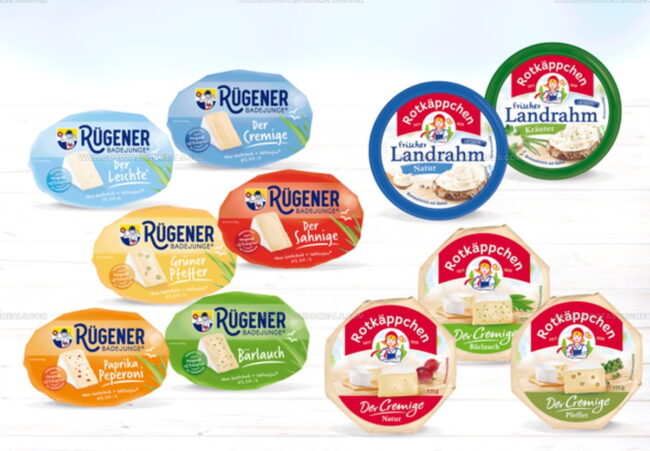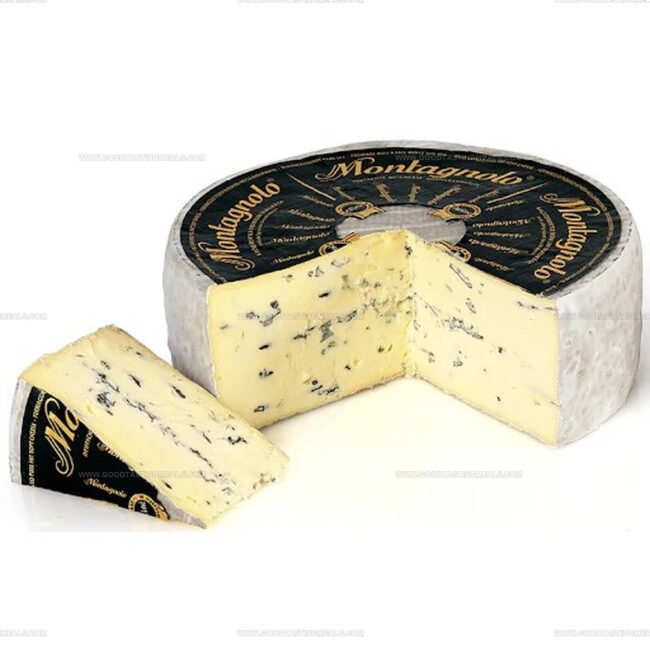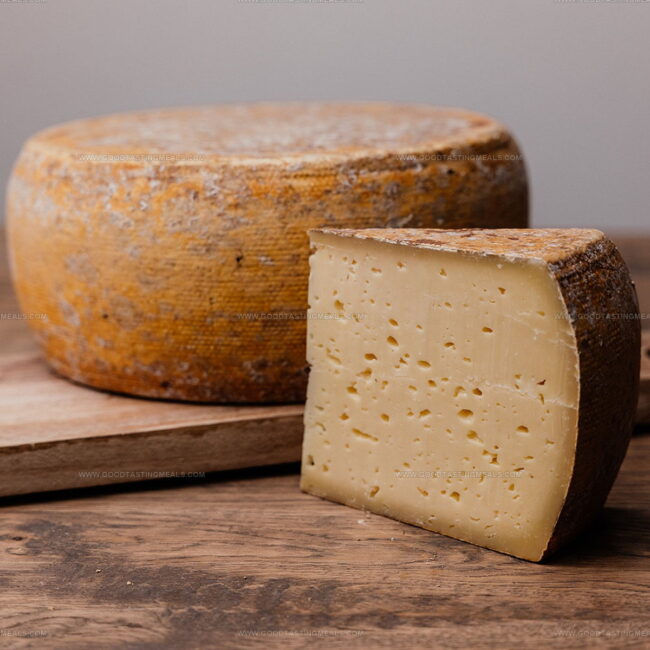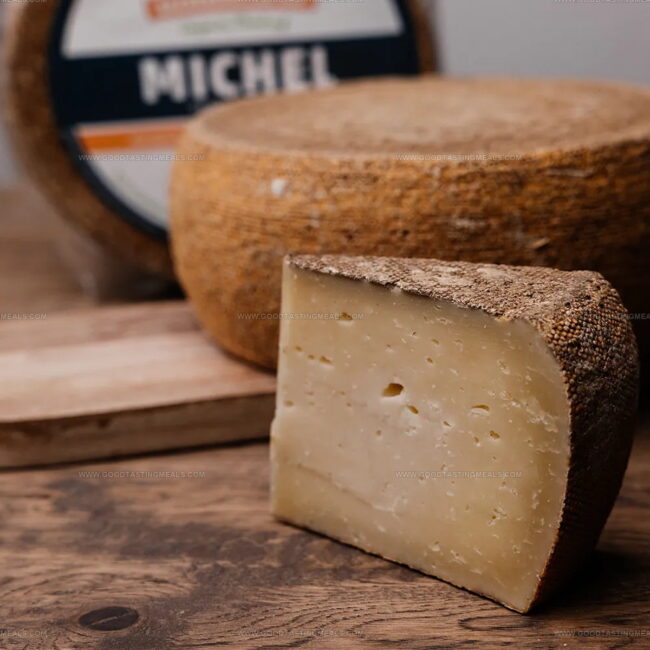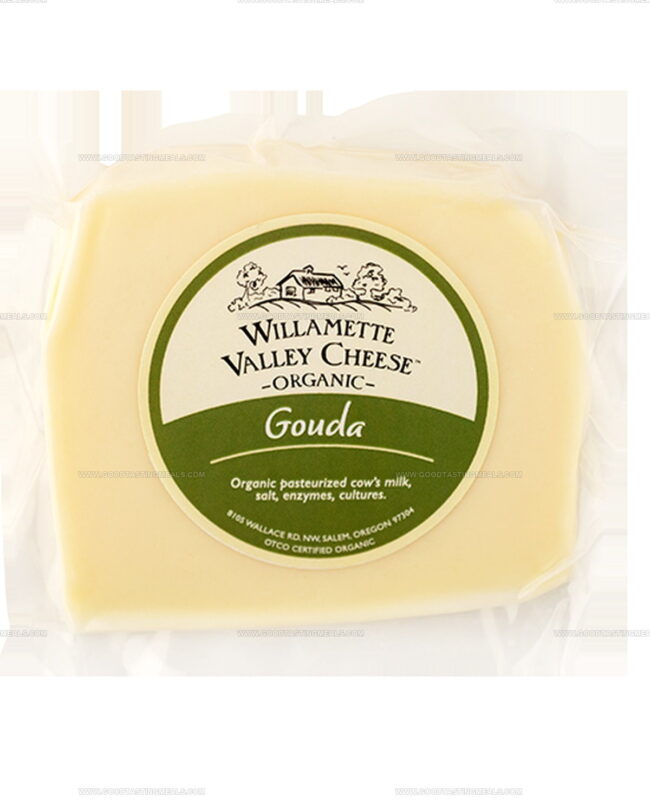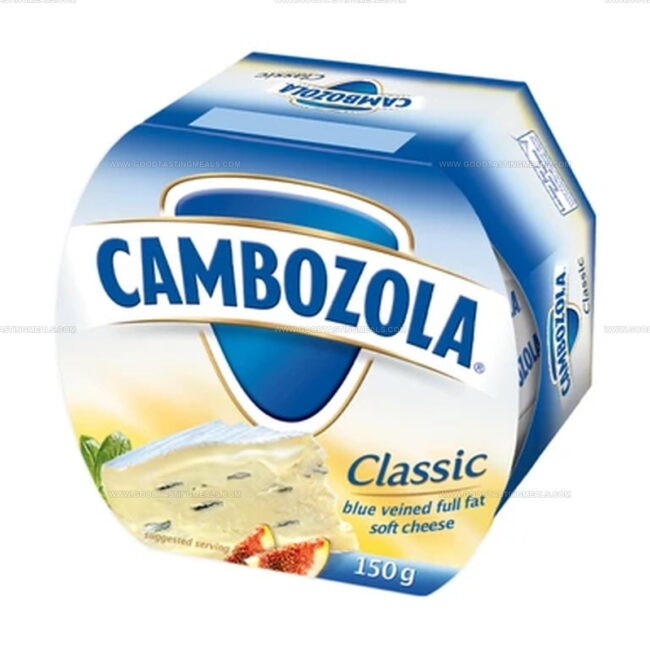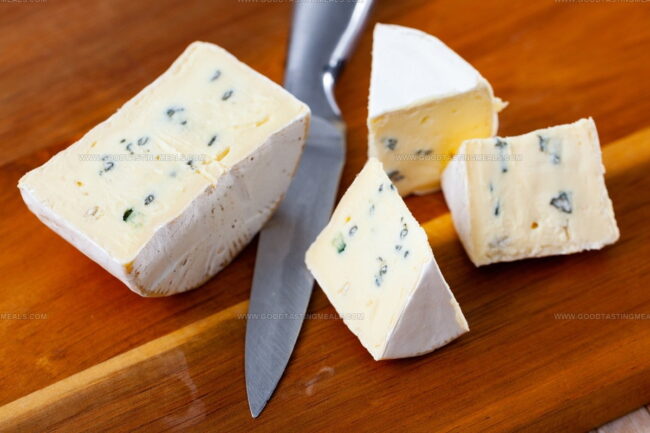41 Flavorful Artisan German Cheeses to Discover
Artisan German cheeses represent a delectable world of craftsmanship and culinary tradition deeply rooted in regional landscapes.
Small-scale producers transform milk into extraordinary flavor profiles that capture generations of agricultural wisdom.
Rural cheesemakers carefully blend time-honored techniques with innovative approaches to create distinctive dairy treasures.
Their meticulous processes transform simple ingredients into complex taste experiences that surprise and delight passionate food enthusiasts.
Regional microclimates and specialized breeding contribute unique characteristics to each carefully crafted wheel and block.
Generations of knowledge pass through family networks, preserving intricate cheesemaking methods that reflect local cultural identities.
Skilled artisans work with remarkable dedication, transforming raw milk into sensory masterpieces that tell stories of landscape and heritage.
These extraordinary culinary creations invite you to savor 22 remarkable German cheese varieties that showcase unparalleled craftsmanship:
German Cheese Types That Go Beyond the Usual
Germany crafts cheeses ranging from creamy cambozola to nutty allgäuer. Taste the diversity that makes German cheese a surprise on every board.
Bavaria Blu
Bavaria Blu represents a distinctive German blue cheese crafted from pasteurized cow's milk in Bavaria's alpine regions since 1972.
Bergader pioneered this handmade cheese with a mold-ripened rind and exceptionally creamy texture.
Its intense aromas and sharp flavors distinguish this premium dairy product from other blue cheeses.
Soft and rich, Bavaria Blu offers multiple versions including Rich and Creamy and Fitness varieties with different fat contents.
Wine enthusiasts recommend pairing this cheese with robust red wines like Lagrein or Dornfelder.
Complex flavor profiles also complement white wines such as Silvaner and Riesling.
Experienced cheese lovers enjoy Bavaria Blu as a standalone appetizer or integrated into sophisticated culinary preparations.
German cheesemaking traditions shine through this exceptional blue cheese creation.
Rauchkase
Rauchkase are German smoked cheese wedges originating in Bavaria with intense smoky characteristics crafted from premium cow's milk.
Bavaria's signature cheese delivers complex flavor profiles through traditional smoking techniques using local birch and spruce woods.
Dairy entrepreneur Basil Weixler popularized this semi-soft cheese variety with its distinctive natural rind and compact texture.
Smoky, spicy, and salty notes emerge from carefully controlled smoking processes that enhance the cheese's fundamental taste.
Dense and creamy, Rauchkase melts beautifully in classic dishes like au gratin and raclette preparations.
Regional German cheesemakers take pride in maintaining authentic production methods passed through generations.
You can enjoy Rauchkase in numerous hot and cold culinary applications across Germany.
Its unique flavor profile makes it a standout ingredient in traditional and modern European cuisine.
Cambozola
Cambozola is a luxurious German blue-veined cheese blending Camembert and Gorgonzola characteristics into a unique dairy creation.
Developed in Allgau during the early 1970s by Kaserei Champignon, this creamy cow's milk cheese features a distinctive grey-molded exterior and smooth interior punctuated with blue veins.
Kaserei Champignon crafted this innovative cheese with a soft, bloomy rind that conceals a rich, complex flavor profile.
Sharp and nutty notes characterize its intense taste, complemented by subtle sweetness that lingers on the palate.
Chardonnay wine pairs exceptionally well with this cheese, enhancing its nuanced flavors.
Serving suggestions include accompaniments like honey, fresh fruit, and crisp crackers.
European cheese enthusiasts consider Cambozola a sophisticated and indulgent selection.
Its balanced blend of textures and flavors makes it a standout among international cheese varieties.
Allgauer Bergkase
Allgauer Bergkase stands as a distinctive Bavarian Alps hard cheese crafted from raw, silage-free cow milk in pristine mountain dairies.
Mountain farmers create this cheese during spring months, producing wheels with rich, complex flavor profiles that evolve through careful aging.
Dairy experts craft each wheel by hand, letting it mature for 3-4 months in valley cellars after initial mountain production.
Young varieties offer mild, fruity and nutty undertones, while aged versions develop deeper, more intense taste sensations.
Compared to its famous cousin Emmentaler, this cheese carries subtle regional characteristics unique to Bavaria's alpine landscape.
German cheese enthusiasts consider Allgauer Bergkase a regional delicacy with deep traditional roots.
Its production method reflects generations of alpine dairy expertise passed through mountain communities.
Strict milk standards ensure exceptional quality and authentic flavor in every carefully aged wheel.
Allgauer Emmentaler
Emmentaler cheese represents Swiss alpine dairy excellence, originating from Emmental Valley's distinctive mountain pastures where raw cow's milk transforms into world-renowned wheels with signature large holes.
Mountain herders traditionally crafted this cheese during summer months, developing unique flavors from alpine flora that give each wheel extraordinary character.
Swiss dairy traditions shape its production, with younger varieties offering mild nutty notes while aged versions intensify in complexity and sharpness.
Cheesemakers carefully age wheels to develop deep, nuanced flavor profiles that range from subtle to intensely robust.
Distinctive large holes mark its visual identity, created by special bacteria during fermentation.
Raw milk from grass-fed cows contributes to its exceptional taste and texture.
Each wheel reflects its alpine origins through rich, complex flavor characteristics.
Authentic Emmentaler remains a celebrated symbol of Swiss cheesemaking heritage.
Altenburger Ziegenkase
Altenburger Ziegenkase is a unique German cheese blending cow and goat milk with distinctive white mold coating.
Regional producers in Saxony and Thuringia craft this specialty cheese with a mild flavor that intensifies as it ages.
Caraway seeds provide an extra layer of complexity to its taste profile.
White mold gives the cheese a soft, creamy texture similar to Camembert.
Traditional serving methods include placing thin slices on bread with pickled vegetables.
Locals enjoy this cheese as a quick, satisfying snack.
Its balanced flavor appeals to those who prefer subtle yet complex tastes.
German cheese enthusiasts consider Altenburger Ziegenkase a regional delicacy worth sampling.
Limburger
Limburger cheese radiates a notorious pungent odor that has made it infamous worldwide, originating from the Duchy of Limburg in the 19th century where Trappist monks first crafted this unique dairy product.
German cheesemakers continue producing most Limburger varieties with a distinctive straw-colored washed rind and transformative texture that shifts from crumbly and firm to smooth and creamy during aging.
Bacterial cultures give the cheese its powerful smell and complex flavor profile, which begins mild and grassy and develops mushroom-like undertones as it matures.
Cow's milk serves as the primary ingredient, creating a semi-soft cheese that challenges even adventurous eaters with its intense aroma.
Regions across Germany, the Netherlands, and Belgium share historical connections to this distinctive cheese.
Six weeks of careful ripening produces its signature soft consistency.
Traditional serving methods often include dark bread and strong mustard.
Limburger remains a unique testament to regional European cheesemaking traditions.
Butterkase
Butterkase delivers smooth, creamy German cheese crafted from cow's milk with an irresistibly mild and buttery flavor profile.
Its golden natural rind develops during one month of careful aging, creating a distinctive semi-soft texture that melts magnificently in popular dishes.
Beer enthusiasts find this cheese particularly enjoyable when paired with a cold glass of their favorite brew.
Grilled cheese sandwiches, fondues, omelets, and burgers benefit from butterkase's exceptional melting qualities.
German cuisine celebrates this versatile cheese as a staple in many traditional recipes.
Restaurants and home cooks alike appreciate its rich, buttery taste and creamy consistency.
Weekend gatherings often feature butterkase as a crowd-pleasing appetizer or ingredient.
Connoisseurs recommend serving this cheese at room temperature to maximize its delicate flavor nuances.
Holsteiner Tilsiter
Holsteiner Tilsiter cheese emerges as a distinctive semi-hard dairy product originating from Germany's Schleswig-Holstein region in the late 19th century.
German cheesemakers craft this unique wheel or loaf exclusively from cow's milk with strict regional production guidelines.
Its light-yellow body features characteristic eyes and cracks with a thin yellow-brown rind.
Caraway remains the sole permitted spice for this cheese variety.
Aging determines the flavor profile, ranging from mild and aromatic to sharp and spicy.
Texture remains supple and springy, offering a complex sensory experience.
Raw or pasteurized milk can be used during production.
Each wheel represents traditional German cheesemaking techniques rooted in regional heritage.
Hirtenkase
Hirtenkase represents a distinctive German mountain cheese crafted from cow's milk in Allgau's alpine regions, featuring unique butterscotch and orange peel aromas that distinguish it from other hard cheeses.
Herders traditionally produced this cheese during seasonal cow migrations from high mountain pastures to valley regions, explaining its name which translates to "herder's cheese".
Blending characteristics of aged Gouda and Parmigiano-Reggiano, Hirtenkase offers a complex waxy texture and milky caramel-like flavor profile.
Robust and intensely aromatic, this cheese pairs exceptionally well with nutty sweet wines, crisp apples, fresh figs, and hearty wholegrain bread.
Cheese connoisseurs appreciate its rich mountainous origins and distinctive taste.
German dairy traditions shine through its carefully crafted production methods.
Alpine herding practices contribute to its unique character.
Moderate aging enhances its complex flavor nuances.
Edelpilz
Edelpilz embodies Germany's rich blue cheese tradition with its creamy semi-soft texture and distinctive blue-green mold veins.
Crafted exclusively from cow's milk, this cheese boasts a robust 22% fat content that delivers intense flavor and smooth consistency.
German cheesemakers carefully develop the cheese's soft rind during aging, which contributes to its complex taste profile.
Blue-green mold strains spread throughout the cheese, creating signature pockets of sharp and tangy notes.
Edelpilz pairs wonderfully with robust red wines and crusty bread.
Its flavor intensity makes it an excellent addition to salads and sauces.
Compared to Danish Blue Cheese, Edelpilz offers a milder yet equally complex taste experience.
Connoisseurs appreciate its balanced approach to blue cheese characteristics.
Romadur
Romadur cheese delivers a powerful sensory experience with its distinct reddish-brown rind and strong spicy aroma.
German cheesemakers craft this specialty from raw cow's milk in small rectangular logs during an 8-10 day aging process.
Salt water washing creates its signature exterior and unique flavor profile.
Belgian origins suggest the cheese migrated to Germany in the 1830s, becoming a Bavarian staple.
Soft and tangy, romadur ranges from mild to sharply flavored.
Cheese enthusiasts appreciate its intense characteristics.
Traditional production methods remain consistent across generations.
Regional techniques ensure its exceptional quality.
Harzer
Harzer cheese represents a low-fat German dairy product originating from Harz mountain region with unique characteristics that make it popular among fitness enthusiasts.
Produced exclusively from cow's milk, this cheese contains merely 1% fat, making it an ideal protein-rich nutrition source for athletes and health-conscious individuals.
German consumers traditionally enjoy Harzer as a quick snack or protein supplement with minimal caloric impact.
Farmers craft the cheese through a specialized fermentation process that takes several days to develop its distinct tangy flavor profile.
Regional producers carefully age Harzer for up to one week before releasing it for consumption.
Mountain communities have long appreciated this lean dairy product as a staple in their diet.
Minimal processing and simple ingredients contribute to its straightforward nutritional value.
Regional culinary traditions continue to maintain Harzer's reputation as a lean, protein-packed cheese option.
Hessischer Handkase
Hessen Handkase is a traditional German sour milk cheese originating from Frankfurt Rhine-Main and Rheinhessen regions, uniquely crafted by hand.
Boasting an incredibly low fat content under 1% and high protein at 25%, this distinctive cheese delivers a powerful pungent aroma that sets it apart from other regional varieties.
German locals typically serve Handkase sprinkled with caraway seeds and topped with sliced raw onions, creating a sharp and intense flavor profile.
Regional restaurants and home kitchens often pair this cheese with dark bread or as a standalone appetizer.
Its name directly reflects its traditional manufacturing method, where cheese makers manually mold the product using time-honored techniques.
Frankfurt and surrounding Hessen areas consider this cheese a staple of their local culinary heritage.
Small dairy producers continue preserving this generations-old cheese-making tradition.
Regional Germans appreciate Handkase as a robust, protein-rich snack with a memorable taste that connects them to their cultural roots.
Bonifaz
Bonifaz cheese transforms Bavarian Alpine dairy traditions with its versatile, creamy texture and complex flavor profiles.
Mountain cow's milk creates this soft cheese with a natural rind that ranges from mild and milky to intensely garlicky and spicy.
Regional artisans craft multiple versions including original, garlic, wild mushroom, chili, green pepper, and yogurt styles.
Small-batch production ensures rich, authentic taste characteristics unique to each wheel.
German cheesemakers carefully age the cheese to develop deep, nuanced flavors.
You can enjoy bonifaz spread on rustic bread, arranged on elegant cheese platters, or mixed into sauces and salads.
Its smooth consistency and adaptable nature make it a favorite among dairy lovers.
Nieheimer Kase
Nieheim cheese represents a unique low-fat German specialty crafted from sour cow's milk quark in Ostwestfalen-Lippe.
Traditional methods transform this cheese through a distinctive salt, cumin, and water rubbing process during ripening.
Despite containing less than 1% fat, the cheese develops an intensely rich and complex flavor profile.
Spicy and pungent notes emerge from its careful preparation, creating a surprisingly robust taste.
Strict production guidelines dating back to 1927 govern its creation and sale.
Caraway hints complement its slightly sour character.
Over time, the cheese becomes harder and more suitable for grating.
Museum records in Nieheim preserve its original manufacturing techniques, ensuring authentic preservation of this regional delicacy.
Bruder Basil
Bruder Basilis a distinctive Bavarian smoked cheese crafted by Trappist monks using pasteurized cow's milk.
Beech wood smoking gives this semi-soft cheese its signature intense flavor profile.
Large irregular eyes punctuate its smooth, creamy texture beneath a distinctive washed rind.
Monasteries in Bavaria pioneered this cheese's traditional production method.
Rauchkase-style techniques contribute to its rich, smoky characteristics.
Soft and pliable, Bruder Basil offers complex flavor notes that complement robust breads and hearty meats.
Cheese enthusiasts prize its unique smoking process and cultural heritage.
Monasteries continue to preserve this regional culinary tradition with meticulous craftsmanship.
Weilacker
Weisslacker cheese are pungent German beer cheese originating from Bavaria's Allgau region with a distinctive salty profile and bright white appearance.
German cheese makers first developed this semi-soft variety during the Franco-Prussian War, creating a unique product that became globally recognized.
Kramer brothers pioneered its production in Wertach, establishing Weisslacker as the world's first patented cheese.
Beer enthusiasts particularly enjoy this intense cheese, which gets its name from its white lacquer-like color and powerful flavor.
German connoisseurs traditionally consume Weisslacker by directly dipping it into beer, avoiding wine pairings due to its strong taste.
Traditional preparation involves using cow's milk and specific regional techniques.
Sliced and served at room temperature, this cheese offers a robust culinary experience.
Its historical significance and unique flavor make Weisslacker a memorable German cheese specialty.
Odenwalder Fruhstuckskase
Odenwald breakfast cheese is a distinctive reddish soft cheese from Germany's Hessian Odenwald region with deep agricultural roots.
Farmers historically used this cheese as a partial lease payment in the 18th century, reflecting its significant cultural importance.
Documents reveal farmers traditionally consumed this cheese after morning milking, earning its breakfast-oriented name.
Yellowish and supple with scattered holes throughout its texture, the cheese offers a strong, spicy flavor with a piquant aroma.
Traditional restaurants often serve it as 'hand cheese with music', combining the cheese with a zesty marinade of diced onions, oil, vinegar, cumin, pepper, and salt.
Regional restaurants continue preparing this specialty, maintaining its historical culinary significance.
German farmers developed this unique cheese as a practical and flavorful morning protein source.
Small variations in preparation distinguish different local versions of this traditional cheese.
Chiriboga Blue
Chiriboga Blue represents a unique semi-soft blue cheese crafted by Ecuadorian-born Arturo Chiriboga in Bavaria's alpine region.
Mountain-fresh cow's milk transforms into this creamy, distinctive cheese through careful aging processes.
Bavaria's cool climate contributes to its exceptional flavor profile and smooth texture.
Arturo Chiriboga pioneered this innovative cheese by blending traditional Swiss blue cheese techniques with German dairy craftsmanship.
Mild yet complex, the cheese offers subtle blue cheese notes without overwhelming sharpness.
Pasteurized milk ensures consistent quality and smooth consistency.
Each wheel ages approximately one to two months before reaching cheese lovers.
Gourmet restaurants and specialty cheese shops frequently showcase this exceptional Bavarian blue cheese.
Milbenkase
Milbenkäse is a bizarre German cheese engineered through microscopic mite interactions in Wurchwitz, where tiny arachnids transform quark cheese through their digestive enzymes during an intricate aging process.
Rye flour strategically prevents mites from consuming the entire cheese, allowing them to feast only on its exterior crust.
Workers place salt-seasoned quark balls into wooden boxes with specific mite populations that trigger complex fermentation.
Specialized mite colonies gradually break down cheese proteins, creating unique flavors and textures during months of careful maturation.
Color changes mark the cheese's progression, shifting from pale yellow to deep reddish-brown as weeks pass.
German cheese makers meticulously monitor each stage of production to ensure precise mite-driven transformation.
One month signals initial flavor development, while three months complete the extraordinary metamorphosis.
Regional traditions protect this extraordinary cheese-making technique as a distinctive culinary marvel.
Allgauer Sennalpkase
Sennalpkase is a distinctive Bavarian alpine cheese crafted exclusively in summer mountain pastures using raw milk from Swiss brown cows.
German dairy farmers in Bavaria's Allgau region produce this robust cheese with exceptional nutritional qualities.
Characterized by its strong, spicy flavor and pronounced smoky aroma, Sennalpkase stands out for its high carotene and Omega-3 content.
Alpine meadow conditions contribute to the cheese's unique taste profile and rich complexity.
Raw milk sourcing ensures authentic flavor characteristics that reflect traditional cheesemaking methods.
Summer production limits the cheese's availability, making it a prized regional specialty.
Swiss brown cow milk provides exceptional richness and depth to the final product.
Mountain pasture environments enhance the cheese's overall sensory experience and nutritional value.
Meet Germany’s Finest Cheese Producers
Master cheesemakers blend tradition and innovation in every wheel. Learn about the producers who have put Germany on the global cheese map.
Kaserei Champignon Hofmeister
Cambozola cheese emerges as a luxurious German blue-veined cheese blending Gorgonzola's sharp intensity with Camembert's creamy smoothness.
Kaserei Champignon Hofmeister, founded in 1908, crafts this unique cheese through meticulous traditional techniques and modern production methods.
Bavarian dairy farmers supply fresh milk for creating this distinctive cheese variety.
Skilled artisans carefully balance the cheese's blue mold and soft texture during production.
Western German cheesemakers developed Cambozola as a milder alternative to traditional strong blue cheeses.
Each wheel represents a careful balance of tangy and mild flavor profiles.
Regional dairy traditions heavily influence the cheese's complex taste characteristics.
Gourmet restaurants and cheese boards frequently feature this exceptional Bavarian cheese as a premium selection.
Rohmilchkaserei Backensholz
Rohmilchkaserei Backensholz cheeses embody pure German dairy craftsmanship through organic raw milk production methods.
Located in Schleswig-Holstein's Oster-Ohrstedt region, this small-scale dairy farm transforms exceptional milk into premium cheese varieties.
Sustainability drives their entire production process, ensuring natural and high-quality dairy products.
Family-owned operations create cow's and goat's milk cheeses using traditional techniques.
Strict organic standards guide every manufacturing step, preserving milk's original nutritional integrity.
Minimal processing allows authentic flavors to shine through each cheese wheel.
Regional agricultural practices support their commitment to ecological balance.
German cheese connoisseurs recognize Rohmilchkaserei Backensholz as a benchmark for authentic, environmentally conscious dairy excellence.
Molkerei Sobbeke
Molkerei Sobbeke are premium organic dairy specialists creating exceptional dairy products sourced exclusively from regional German farms.
Located in Epe, Germany, this dairy company focuses on sustainable organic milk production through carefully selected local agricultural partnerships.
Family-owned operations guide their commitment to high-quality organic standards and environmentally conscious practices.
Their product range spans multiple dairy categories including fresh milk, creamy yogurts, and artisan cheeses.
Organic farming principles drive every stage of their production process.
Strict quality control ensures consumers receive premium dairy products with genuine nutritional value.
Supporting small regional farmers remains central to their business model.
Consumer health and environmental sustainability form core principles behind their comprehensive dairy offerings.
Willamette Valley Cheese
Willamette Valley Cheese embodies artisan organic dairy craftsmanship, producing premium handcrafted cheeses from pastured cows in Salem, Oregon.
Rooted in family traditions, this small-scale dairy operation transforms fresh milk into exceptional gouda, havarti, and jack cheese varieties.
Family-owned Volbeda Dairy Farm supports their cheese-making process, ensuring high-quality ingredients and sustainable farming practices.
Each cheese wheel reflects meticulous care and generations of dairy expertise, showcasing Oregon's rich agricultural heritage.
Organic certification guarantees consumers receive natural, untainted dairy products with superior flavor profiles.
Gouda stands out as their signature offering, characterized by rich, complex taste and smooth texture.
Pastured cow milk provides the foundation for their distinctive cheese selections.
Commitment to quality and traditional methods distinguishes Willamette Valley Cheese in the competitive artisan cheese market.
Urstrom Kaese
Urstrom Kase represents premium organic cheese crafted with meticulous German precision by a dedicated production company specializing in sustainable dairy products.
Mountain pasture milk from local farms creates rich, complex flavor profiles across their diverse cheese selections.
Small-batch production ensures high-quality standards and careful aging processes.
Organic certification guarantees natural ingredients without synthetic additives.
Sustainable farming practices support ecological balance and animal welfare.
Regional German agricultural traditions inspire their cheese-making techniques.
Unique aging methods develop nuanced taste experiences for cheese enthusiasts.
Each cheese reflects careful craftsmanship and commitment to environmental responsibility.
Jordan Olivenoel
Jordan Olivenoel produces premium olive oils and cheeses sourced through sustainable practices in Germany.
European food experts recognize their meticulous ingredient selection and commitment to quality agricultural methods.
German agricultural standards guide their production process, ensuring consistent product excellence.
Small-batch manufacturing allows precise control over ingredient selection and processing.
Mediterranean olive varieties contribute unique flavor profiles to their olive oil collections.
Careful farming techniques minimize environmental impact during ingredient cultivation.
Regional partnerships support local agricultural communities near their production facilities.
International markets have increasingly embraced Jordan Olivenoel's carefully crafted product lines.
Baldauf Kase
Limburger cheese embodies Germany's rich dairy heritage with its pungent aroma and creamy texture, originating from the Allgau region's traditional cheesemaking practices.
Baldauf Kase, established in 1862, specializes in crafting this distinctive cheese using regional milk and time-honored techniques.
Located in southern Germany, this family-owned company produces multiple cheese varieties, including Bergkase and Weilacker.
Limburger's intense smell comes from bacteria cultivated during aging, which creates its signature strong flavor profile.
Historically associated with German cuisine, this cheese pairs wonderfully with dark bread and strong mustard.
Workers carefully monitor each cheese's development to ensure consistent quality and authentic taste.
Regional dairy traditions heavily influence Baldauf's cheesemaking methods, maintaining generations of expertise.
German cheese enthusiasts consider Limburger a classic representation of their culinary landscape.
Andechser Molkerei Scheitz
Andechser Molkerei Scheitz represents a premium organic dairy brand committed to sustainable agricultural practices in Germany.
Bavaria's Andechs region hosts this renowned dairy company producing high-quality organic milk, yogurt, and cheese products.
German farmers collaborate closely with Andechser to ensure environmentally friendly dairy production methods.
Regional organic farms supply milk for their comprehensive product range.
Sustainable agricultural techniques define their core business strategy.
Quality control remains a significant priority for the organization.
Consumers value their commitment to ecological farming principles.
Nutritional excellence characterizes every Andechser dairy item.
Bio-Schaukaeserei Wiggensbach
Bio-Schaukaeserei Wiggensbach stands as a premier organic cheese production facility nestled in Bavaria's picturesque countryside.
Located in Wiggensbach, Germany, this unique dairy center combines traditional cheese-making techniques with modern organic practices.
Visitors can explore an interactive exhibition area that reveals every step of their artisan cheese production process.
Local organic milk serves as the primary ingredient for their high-quality cheese varieties.
Specialized equipment and expert methods ensure each cheese wheel meets strict organic standards.
Guests learn about sustainable dairy farming and traditional cheese-crafting techniques during their visit.
Traditional Bavarian cheese-making heritage shines through in every product created at this facility.
Organic milk sourced from nearby farms transforms into premium cheese products that showcase regional agricultural excellence.
Kaeserei Altenburger Land Gmbh Co. Kg
Altenburger Ziegenkase represents a distinctive German goat cheese originating from Thuringia's specific geographic region with protected European Union status.
Germany's Kaeserei Altenburger Land GmbH Co.
KG produces this unique cheese using traditional regional techniques and local ingredients.
Goat milk from nearby farms forms the cheese's primary component, creating a rich and tangy flavor profile.
European regulations strictly control its production, ensuring authentic manufacturing methods remain consistent.
Each wheel maintains specific quality standards established by regional cheesemaking traditions.
Geographical indication guarantees its authentic origin and distinctive taste.
Small-batch production contributes to its exceptional character and limited availability.
Cheese connoisseurs recognize Altenburger Ziegenkase as a premium regional specialty with deep cultural significance.
German Cheeses That Steal the Spotlight
Bold, mellow, or somewhere in between, German cheeses deliver memorable bites every time. Add these to your next tasting for something truly special.
Kaserei Champignon Hofmeister Rougette Bavarian Red
Rougette Bavarian Red represents a luxurious semi-soft cheese crafted in Bavaria, Germany, boasting a smooth, creamy texture and distinctive red rind.
Cheese lovers savor its mild yet rich, buttery flavor that intensifies with age.
Artisan makers carefully produce this unique dairy delight using traditional German cheesemaking techniques.
You can enjoy Rougette on elegant cheese boards or pair it with fresh bread, ripe fruits, and crisp white wines.
Small-batch production ensures exceptional quality and consistent taste.
German dairy traditions shine through its delicate composition and balanced flavor profile.
Sophisticated yet approachable, this cheese appeals to both casual and serious gourmets.
Wine enthusiasts particularly appreciate its versatile character and smooth melting properties.
Willamette Valley Cheese Perrydale
Perrydale cheese bursts with a complex sweet-tangy flavor profile crafted by Willamette Valley Cheese in Oregon.
Small-batch artisan producers carefully select high-quality milk from sustainable local dairies to create this distinctive cheese.
Creamy and smooth, Perrydale offers remarkable versatility for cheese boards and cooking applications.
Oregon cheesemakers blend traditional techniques with innovative approaches to develop its unique taste.
Willamette Valley Cheese carefully ages the cheese to enhance its nuanced flavor characteristics.
Sustainable dairy practices contribute to the cheese's rich and balanced profile.
Artisan production methods ensure consistent quality in every batch.
Small dairy farms near Oregon's Willamette Valley provide premium milk for this exceptional regional cheese.
Kaserei Champignon Hofmeister Montagnolo Affine
Montagnolo Affine combines smooth German blue cheese expertise with exceptional creamy complexity, delivering a luxurious triple-cream experience that melts effortlessly on the palate.
Originating in Bavaria, this sophisticated cheese blends mild blue cheese characteristics with buttery richness and subtle earthy undertones.
Its unique blue veins create a gentler flavor profile compared to traditional sharp blue cheeses.
German cheesemakers carefully age each wheel to develop nuanced taste dimensions.
Sophisticated dairy lovers appreciate its velvety texture and balanced flavor notes.
Professional dairy crafting ensures consistent quality and depth of character.
Mild tanginess emerges gently across each smooth bite.
Balanced sweetness complements its rich, creamy foundation.
Molkerei Sobbeke Sobbeke Uriger Hannes
Sobbeke Uriger Hannes is a premium organic cheese crafted by German dairy experts who prioritize sustainable production methods.
Molkerei Sobbeke GmbH creates this distinctive cheese using carefully selected organic milk from local farms.
Rich and robust in flavor, the cheese reflects traditional German dairy craftsmanship and commitment to quality.
Each wheel undergoes meticulous production processes that preserve its authentic taste profile.
Organic standards guide every stage of manufacturing, ensuring consumers receive a pure and naturally produced product.
Small-batch production allows for precise quality control and maintains the cheese's exceptional characteristics.
German dairy traditions shine through in this exceptional organic cheese offering.
Sustainable practices and premium ingredients define Sobbeke Uriger Hannes as a superior dairy product.
Rohmilchkaserei Backensholz Deichkase Gold
Deichkase Gold represents a premium raw milk cheese crafted by Rohmilchkaserei Backensholz in Schleswig-Holstein, Germany, embodying exceptional regional artisan cheese-making traditions.
Coastal influences from nearby dykes infuse this cheese with unique maritime characteristics and complex flavor nuances.
German cheesemakers source milk exclusively from their local herd, ensuring superior quality and authentic production methods.
Traditional techniques carefully guide the cheese's aging process, creating a distinctive gold-tier variant within the Deichkase range.
Regional terroir significantly impacts the cheese's subtle flavor profile, reflecting the rich pastures and salty sea air of northern Germany.
Sustainability remains a core principle during production, with careful attention to environmental and livestock welfare.
Raw milk selection guarantees maximum flavor intensity and nutritional preservation.
Small-batch production ensures meticulous quality control and authentic craftsmanship throughout the cheese-making process.
Rohmilchkaserei Backensholz Groer Deichkase 12 Monate
Groer Deichkase 12 Monate represents a premium raw milk cheese from northern Germany with an intense 12-month aging process that develops extraordinary depth and complexity.
Rohmilchkaserei Backensholz carefully crafts this specialty cheese using traditional methods and high-quality raw milk from regional herds.
Its firm texture reveals rich nutty undertones complemented by subtle sweet nuances that distinguish it from milder cheese varieties.
Connoisseurs appreciate this cheese for its complex flavor profile and dense, robust character.
Experts recommend serving it at room temperature to maximize its intricate taste dimensions.
Cheese platters and gourmet recipes frequently showcase this exceptional German dairy product.
Fine wine pairings can enhance its sophisticated flavor characteristics.
Sophisticated palates will savor every complex bite of this remarkable aged cheese.
Rohmilchkaserei Backensholz Michel
Michel cheese emerges as a premium organic raw milk cheese crafted by Rohmilchkaserei Backensholz, a renowned German dairy farm specializing in exceptional dairy products.
German artisan cheesemakers carefully produce this cow's milk cheese using traditional methods that preserve its distinctive character.
Each wheel develops a robust, nutty flavor profile that intensifies with careful aging.
Creamy and complex, Michel offers a smooth texture that delights serious cheese connoisseurs.
Raw milk contributes to its rich, deep taste that reflects the highest standards of German dairy craftsmanship.
Organic production ensures superior quality and authentic flavor characteristics.
Natural aging processes enhance Michel's depth and complexity.
Backensholz farm's commitment to excellence shines through in every carefully crafted cheese wheel.
Willamette Valley Cheese Cumin Gouda
Cumin Gouda represents a bold fusion of Dutch cheese-making traditions with Oregon's artisan dairy craft.
Willamette Valley Cheese expertly blends creamy Gouda with aromatic cumin seeds, creating a distinctive cheese with complex flavor profiles.
Each wheel combines mild, nutty Gouda characteristics with a subtle, peppery cumin undertone that adds unexpected depth.
Handcrafted in Oregon, the cheese showcases local milk and meticulous aging techniques.
Cumin seeds are evenly distributed throughout the cheese, providing visual and taste intrigue.
Smooth texture and balanced spice make this cheese versatile for charcuterie boards and gourmet recipes.
Small-batch production ensures consistent quality and unique sensory experience.
Cheese lovers prize this innovative interpretation of traditional Dutch cheese-making methods.
Kaserei Champignon Hofmeister Cambozola
Cambozola is a luxurious German blue cheese blending creamy Camembert smoothness with bold Gorgonzola tang, creating a uniquely mellow blue cheese experience.
Bavaria's signature cheese features a soft, rich texture that melts beautifully on breads and crackers.
Professional cheesemakers craft this specialty by carefully aging cow's milk with blue cheese cultures, developing its distinctive mild yet complex flavor profile.
Blue veins running through its white interior signal its authentic production method.
European gourmets frequently serve Cambozola with crisp white wines or fruity accompaniments like pears and figs.
Restaurants worldwide showcase this cheese as a sophisticated appetizer or gourmet ingredient.
Fine dining establishments often feature Cambozola in salads, sauces, and elegant cheese boards.
Imported from Germany, this cheese represents a perfect balance between smooth and sharp cheese traditions.
What Are the Most Traditional Production Methods Used in German Cheesemaking?
Traditional German cheesemaking reflects centuries of artisanal craftsmanship, combining time-honored techniques with regional variations. Some of the most common methods include:
These methods together create the rich diversity and depth that characterize German cheeses, balancing tradition and natural processes.
